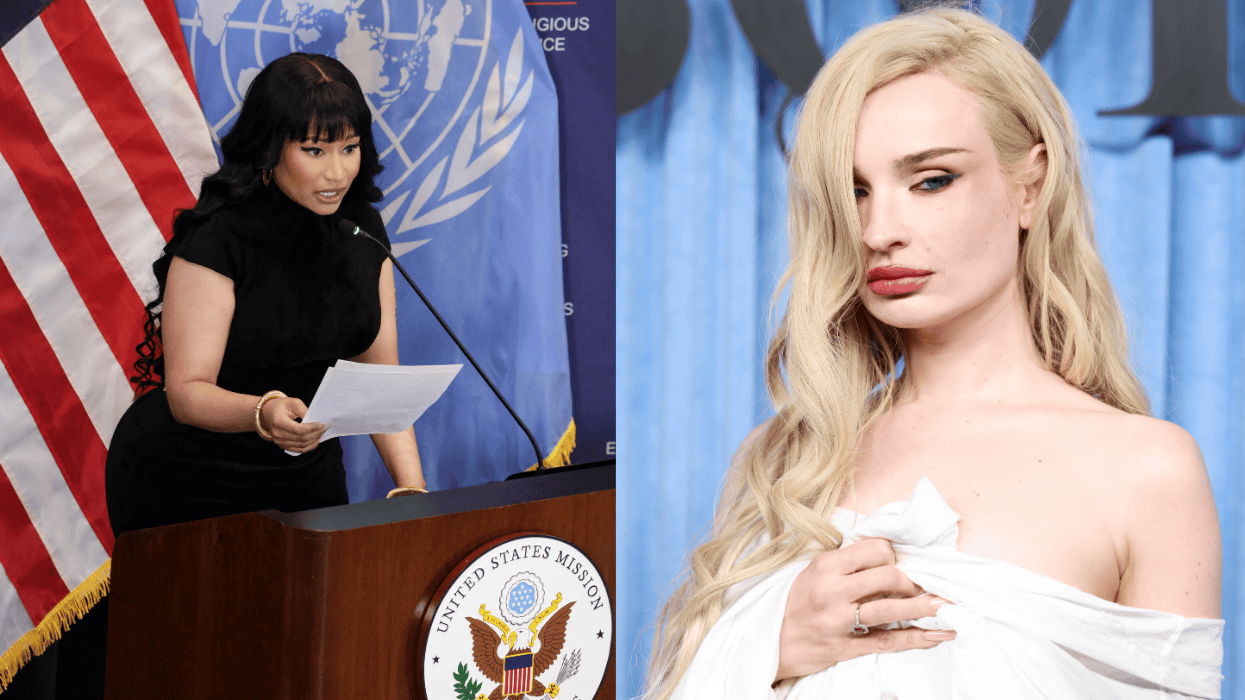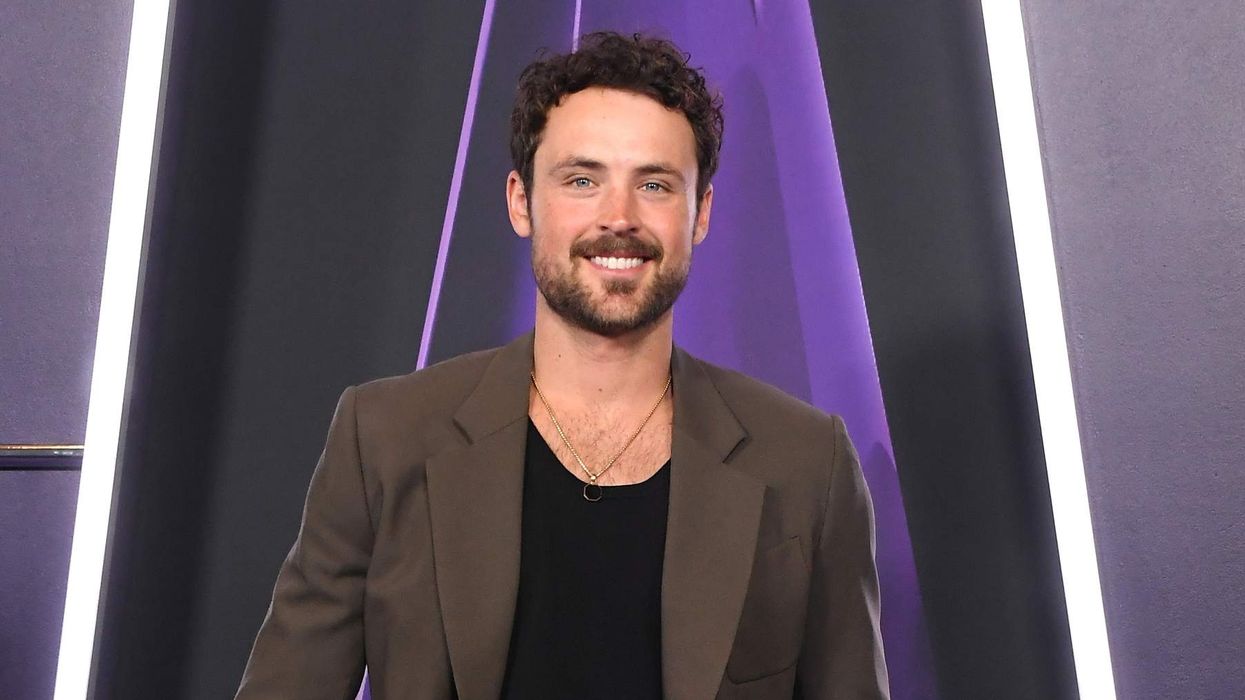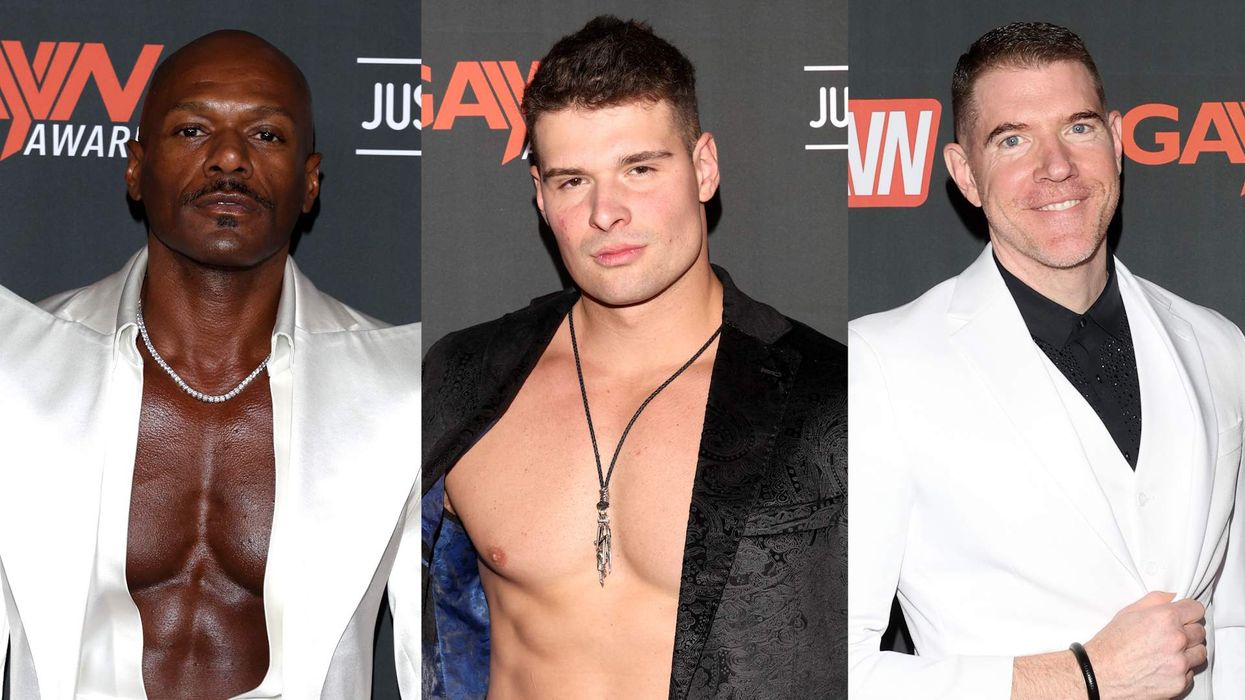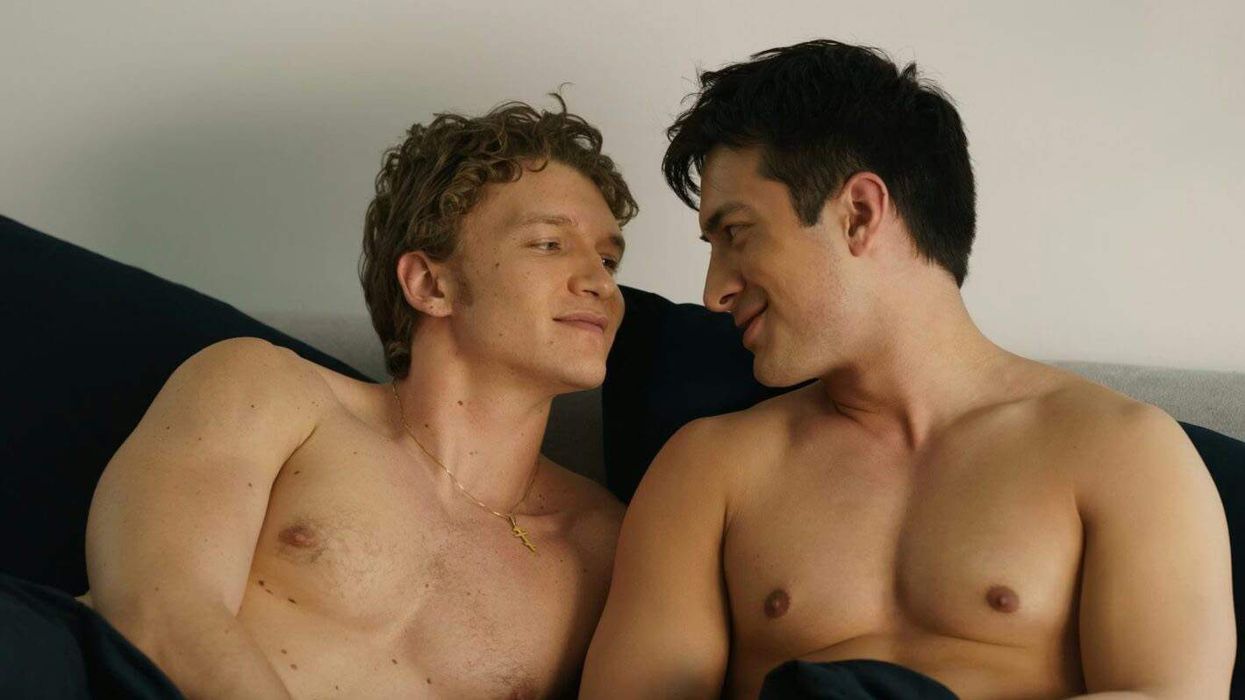I. 2011: The year of boys who like girls who play girls who like girls. Except in this case, the girls were influential lesbian bloggers and the boys were old straight men. It seemed like an unprecedented scandal when the veil was lifted from the identity of the "Gay Girl in Damascus" blogger -- supposedly an imperiled young Syrian lesbian by the name of Amina Abdullah Araf al Omari -- really a 40-year-old married male American student living in Edinburgh. On the tail of that shocker, the executive editor of LezGetReal.com, Paula Brooks, outed "herself" as a 58-year-old retired male construction worker from Ohio. LezGetReal.com was one of the sites "Amina" posted on and (now it gets real meta) she had even flirted at times with Brooks.
The outcry came in all shapes and sizes. Boredom? Thrills? These men had loftier claims, of course: namely concerns over human rights and homophobia. And of, course, the logic both used: People wouldn't take me seriously if I had written as a straight man.
Though "sockpuppet" may have just entered the lexicon--the ingenious Internetese tag given to a fake online persona created with the purpose of deceiving a community -- the game is not new nor exclusive to overambitious lesbros.
Many of us have participated in a small-scale version of sockpuppetry, maybe even more than we'd care to admit. Who always uses their real name online? Who hasn't found crass comfort in the murky anonymity the Internet affords? Who hasn't touched down on the comments section of some controversial article and tinted their identity a deeper shade of credible? Last year, I was agonized by the insta-atmosphere of Islamophobia in the U.S. over the "Ground Zero mosque." As a Middle Eastern woman, I found myself constantly battling it out in the comments sections of blogs and news sites to educate and defend. What I got in return: more Islamophobia, from playground jeers to bone-chilling slurs. One late night, I chose a white male username and did my Islam-defending from "his" side -- that conversation actually went further than "STFU, dune goon."
The crime of Internet deception is deeper when dealing with the marginalized; when race and sexuality come into the equation, it's a manipulation of our moral and ethical considerations. One privileged group forsakes the platform of their privilege to push forward their supposedly progressive ideologies. But they instead sink in the shadows of the disenfranchised, falsely wearing their scars as badges of invisible solidarity, at best. At worst, it's just the same voyeurism, rooted in the same ugly ideas they claim to fight. And it can be downright traumatizing for the folks they're puppeting; Amina and Paula's outing was a funeral of sorts -- a needless one, but their loss, a loss of fictional characters who felt flesh and blood, who many connected to, was a genuine loss nonetheless. It's a mockery of the necessity and survival that, for centuries, required queer folk play straight.
I found it amazing that I was so outraged by the summer's curious cases of fiction infringing on our "real lives." For one thing, I am a writer of fiction. But more importantly, I have been there, done that. And by "that," I mean the year I spent in cyberdrag.
II. 1994: I was a not-sweet 16, old enough to know, but not act, better. Chat rooms were a mysterious other world, like what I imagined the clubs and underground raves I was dying to go to (but due to strict Iranian parents, could not) were like. There was an anything-can-happen vibe. They seemed like they could offer vaguely illicit delights.
I was a lonely kid, not even allowed to go to sleepovers, but thanks to MTV and magazines, I was also riot-grrrly and suburban punk, just without outlets.
Chat rooms created an outlet safe from the judgment and restrictions of my parents. It looked harmless that I was on the computer a lot -- our first P.C. was seen as an educational device, a vehicle for homework. So I became the sole member of our family who was online constantly, usually late at night when I was supposedly typing papers for Honors English. Instead, I cruised the early chat rooms, which were rather innocently divided by interest -- Music, Politics, Art, and more specific ones, like the Beats, Borzois, Middle Eastern Connection, etc. It was in a particularly nerdy, literature-oriented chat room that I made my closest "friends." And so it happened, in the first few months of early Internet addiction, that ChadRoe and I became known on our favorite site as an item: "PeaKae + ChadRoe = <3." One day, Chad, as I assumed was his name, called me Pete, as he assumed was my name.
I didn't correct him. Instantly, I felt like a woman who had walked in on my lover with someone else, even though this someone else was actually me. The one downfall was this other life was as close to fiction as the nonfiction world could get. Chad was a gay man, and since there was no figure to size up, no discussion of anatomy, no making out on the second date, why couldn't he have just as likely assumed I was a man -- and a gay man to boot?
So when he asked me, Pete, if I wanted to send a picture, I acted like we weren't there yet. Chad meanwhile sent one--a stocky, tattooed French Canadian with a buzz cut, eyeliner, and a neon orange hoodie. The kind of dream gay friend I had always imagined having, a Ricky to my Rayanne, a wisecracking, advice-doling almost-brother. Not the wiry, bespectacled, Dead-Poets-Society-extra-looking, shaggy-haired artboy of my dreams.
I never told Chad I wasn't Pete. How could I? In pretending to be a gay man, I wasn't simply trying to deceive. I had been too embarrassed by our intimacy to tell him the truth: that I was half his age and female, a sheltered suburban high school nerd with acne and frizzy hair. I felt close to him and did not want to let him down. And I didn't want to let go of our connection. If there had been a misunderstanding, I had to become the understanding to set it right. And since the Internet afforded me that obscurity, the Wizard of Oz curtain where anyone can be anything they really wanted -- anything in fantasy and nothing in reality -- I felt, in some strange way, it was still in the realm of fair.
To better communicate with Chad, I did research on gay-male-only chat rooms. I was constantly crushed by how at home I felt in those moments in that other realm. Whereas boys at school found my humor and personality like my looks -- weird, off-putting -- the gay men I encountered got my humor, shared my interests, cared about my problems, and I theirs. I'd get lost in a whirlwind of LOLs and emoticons, and then suddenly it would hit me hard: I didn't exist.
Chad turned up the heat a few times but I kept backing away. "Ur like a shy schoolgirl!" he once said. "F U!" I wrote back, a retort I used a lot with him. He persisted, but eventually I dropped out and avoided him altogether, not because I didn't like him -- I felt in love with him as ever -- but because I didn't like me: namely, a me that didn't want to be me. Self-hatred was making my life unlivable, and it was time to move on.
PiaKhate was my next alias, and it went a bit better, though I still remember my second chat-room boyfriend once commenting, "How do I know you're not a 500-pound lumberjack?" I wrote back, "Good question." And then, "You don't."






























